Companies and Brands
10 Least Popular Clothing Brands According to Baby Boomers: Ranked
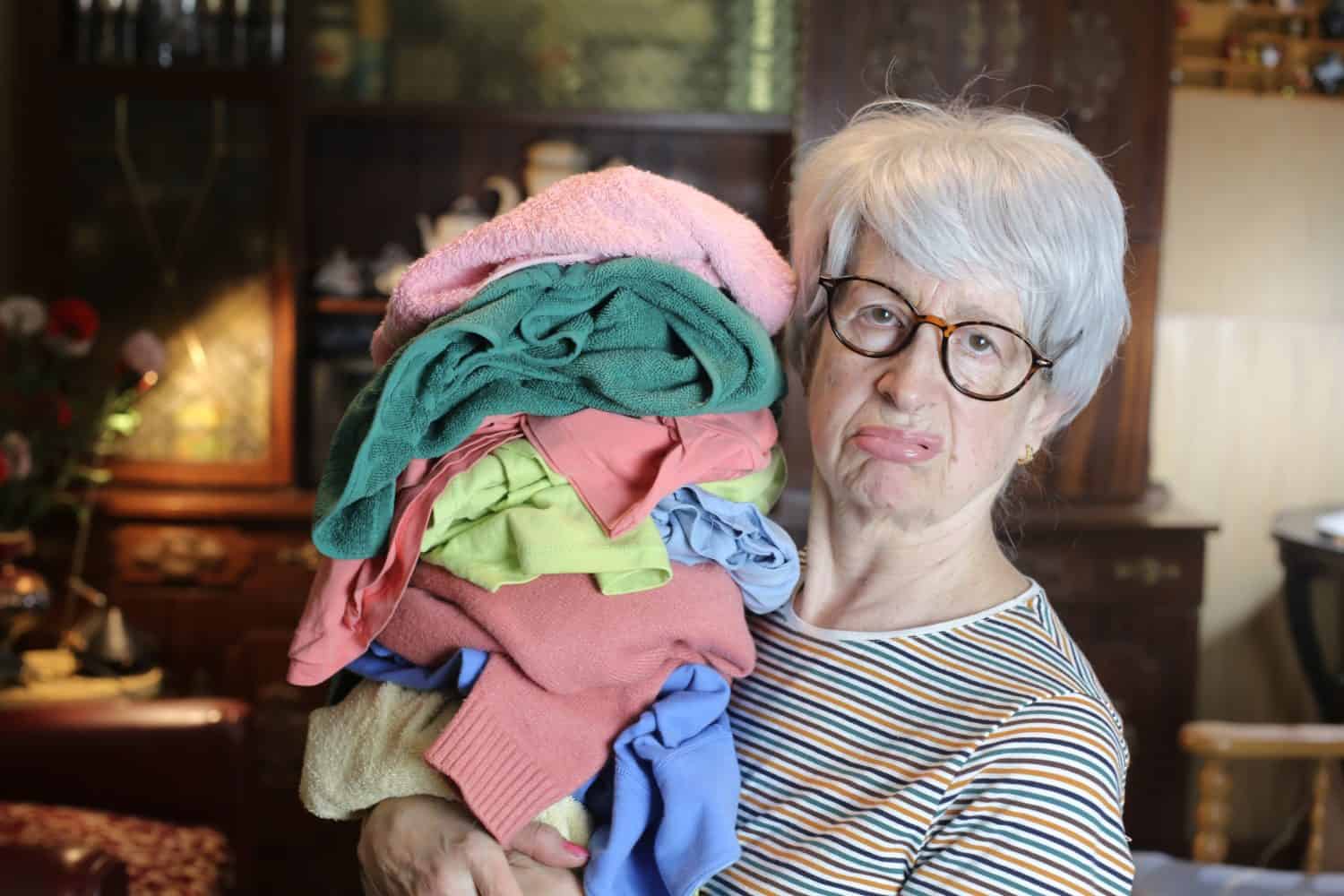
Published:

In many ways, Baby Boomers are known for changing the fashion world. From the 1960s to the 1980s, social, political and fashion norms changed. In the ’60s, societal norms shifted, while the ’70s focused on political transformation and upheaval, and ushered in an era of hip teenage Baby Boomers.
In some circles, Boomers are credited with creating and normalizing the bikini, the mini skirt and knee-high boots. While Boomers take a lot of heat for some of their modern political and economic views, they’re credited with some fashion items that came way ahead of their time and are now popular with other generations.
Some examples include go-go boots, turtlenecks under blazers, plaid suits, flared pants, colored tights, anything suede, tie-dye, big hair, wrap dresses and jumpsuits. To give Boomers their due when it comes to fashion, we’ve created a list of their least favorite fashion brands.
Our list was pulled from a survey done by YouGov, where brands were ranked by popularity and fame. To simplify our findings, we only looked at clothing brands that more than 90% of those surveyed recognized.
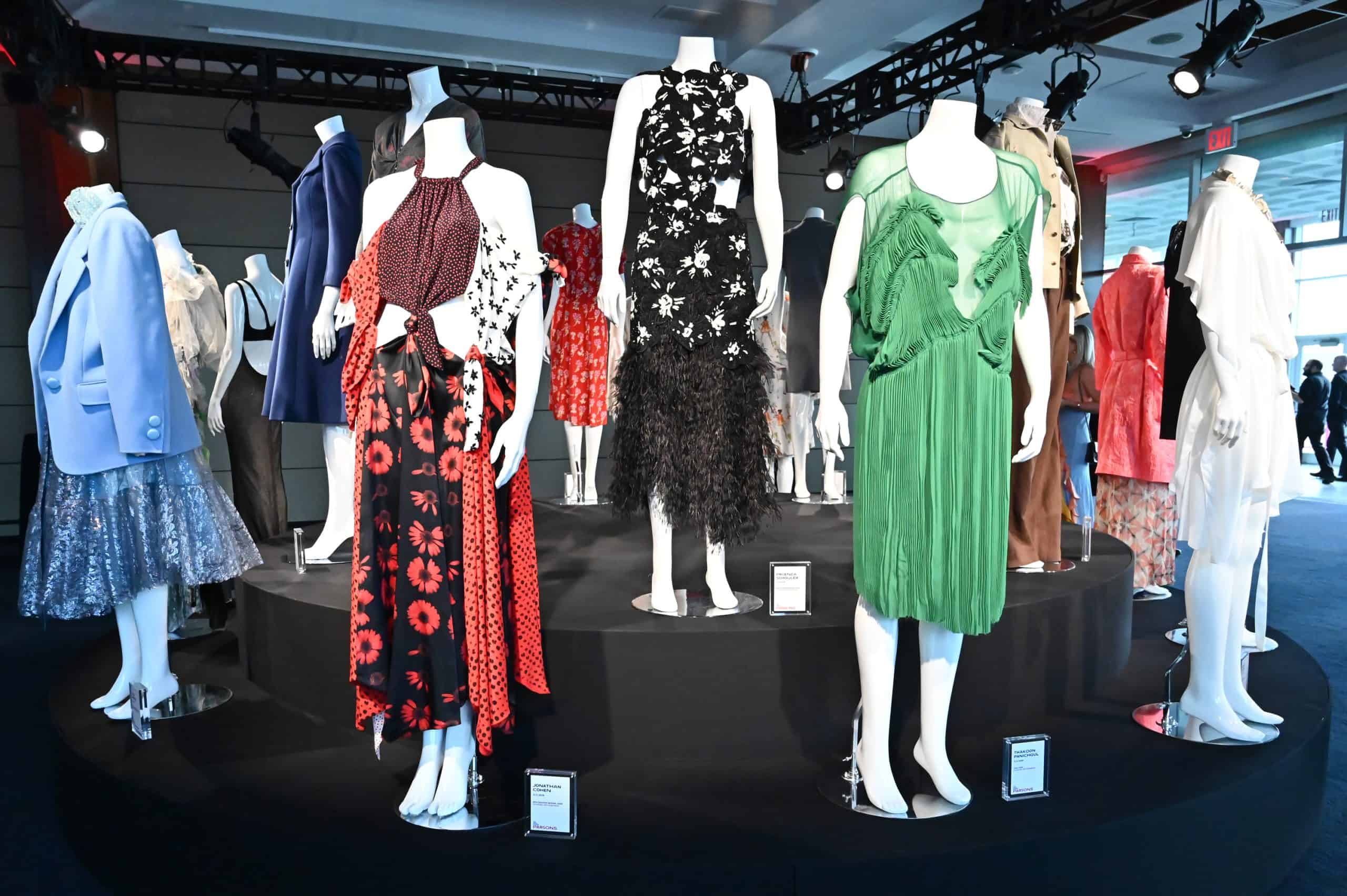
In 2023, it was estimated that the global fashion industry is worth $1.7 trillion. The first brand on this list, Calvin Klein, reported $9.3 billion in 2022, and the founder himself is worth $800 million. These companies affect your money in everyday ways you may not understand, and Boomers hold a huge hold on the economy. Understanding their likes and dislikes helps companies hone in their advertising and find the right market to appeal to. At 24/7 Wall Street, we want to arm you with information to increase your personal wealth, and understanding the impact of the fashion industry is an ideal way to do that.

Baby Boomers have their name because they were born at a time when the population was exploding. After the awful conditions of the Great Depression and the global impact of World War II, many Americans felt optimistic about the future, and the result was a large influx of babies in these years. While there is much talk about them bankrupting Social Security, they also contribute a huge amount to the American economy.
In some ways, it’s hard to see the connection between some of these luxury clothing brands and the things Boomers value. This generation is known for its focus on work ethic, family, optimism, religion, personal growth, generosity, financial support and creativity. While many get a bad rap in today’s world, it may just be that they are misunderstood when it comes to things like fashion.
Boomers aren’t likely to spend money on frivolous things, but they also have more disposable money to spend on things like higher-quality clothing. While younger generations like Millennials and Gen Z are focused on the ethics and social platform of many companies, Boomers simply want high-quality clothing they can rely on. They are less likely to research or boycott a brand for their stance on many controversial issues. This may be why some of the oldest, longest-lasting fashion brands remain popular with those who were born between 1946 and 1964.
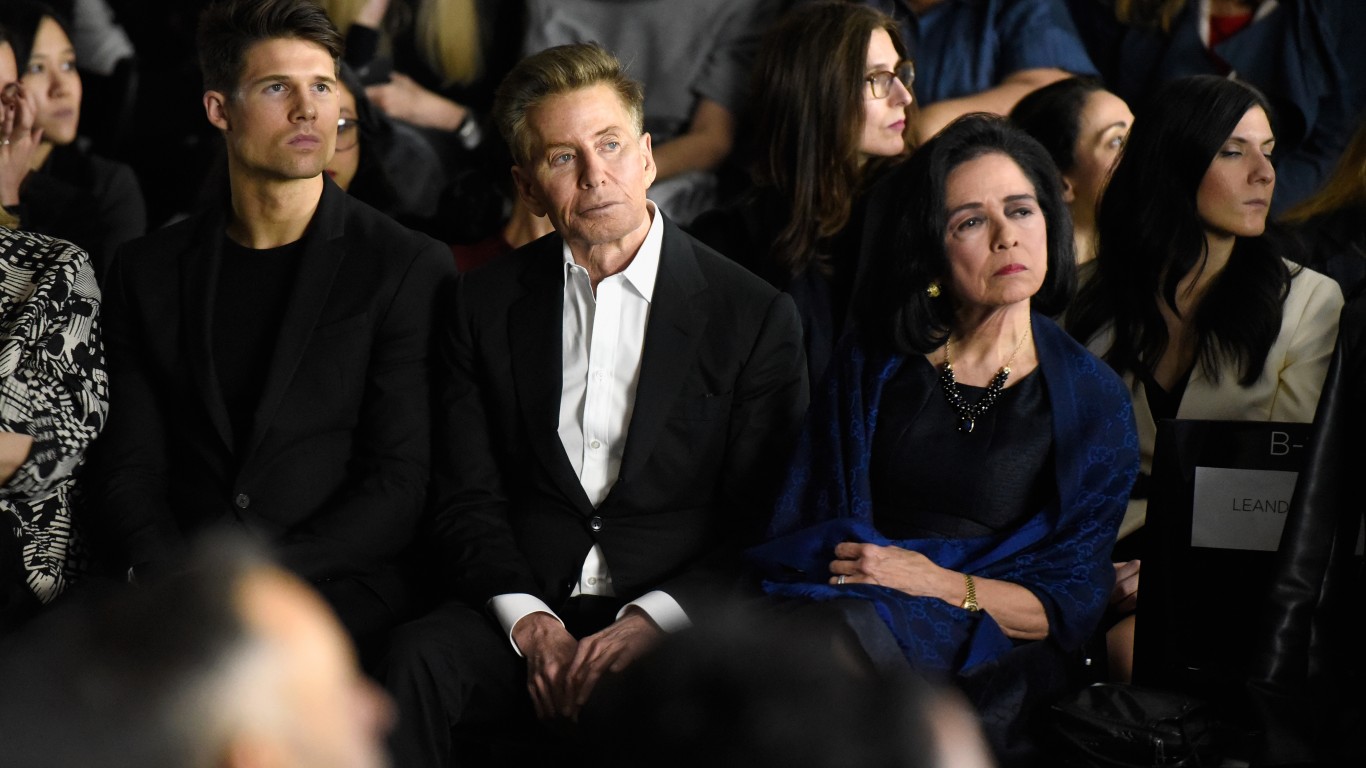
A whopping 99% of Boomers surveyed knew of the brand, but only 47% considered it popular. The brand is known for its high-quality construction, minimalist aesthetic and innovative designs. Boomers tend to value things that last and fashion without a lot of fluff, so that may explain their affinity for Calvin Klein. We doubt it’s the thirst trap underwear ads the brand is also known for, although that probably appeals to younger generations.
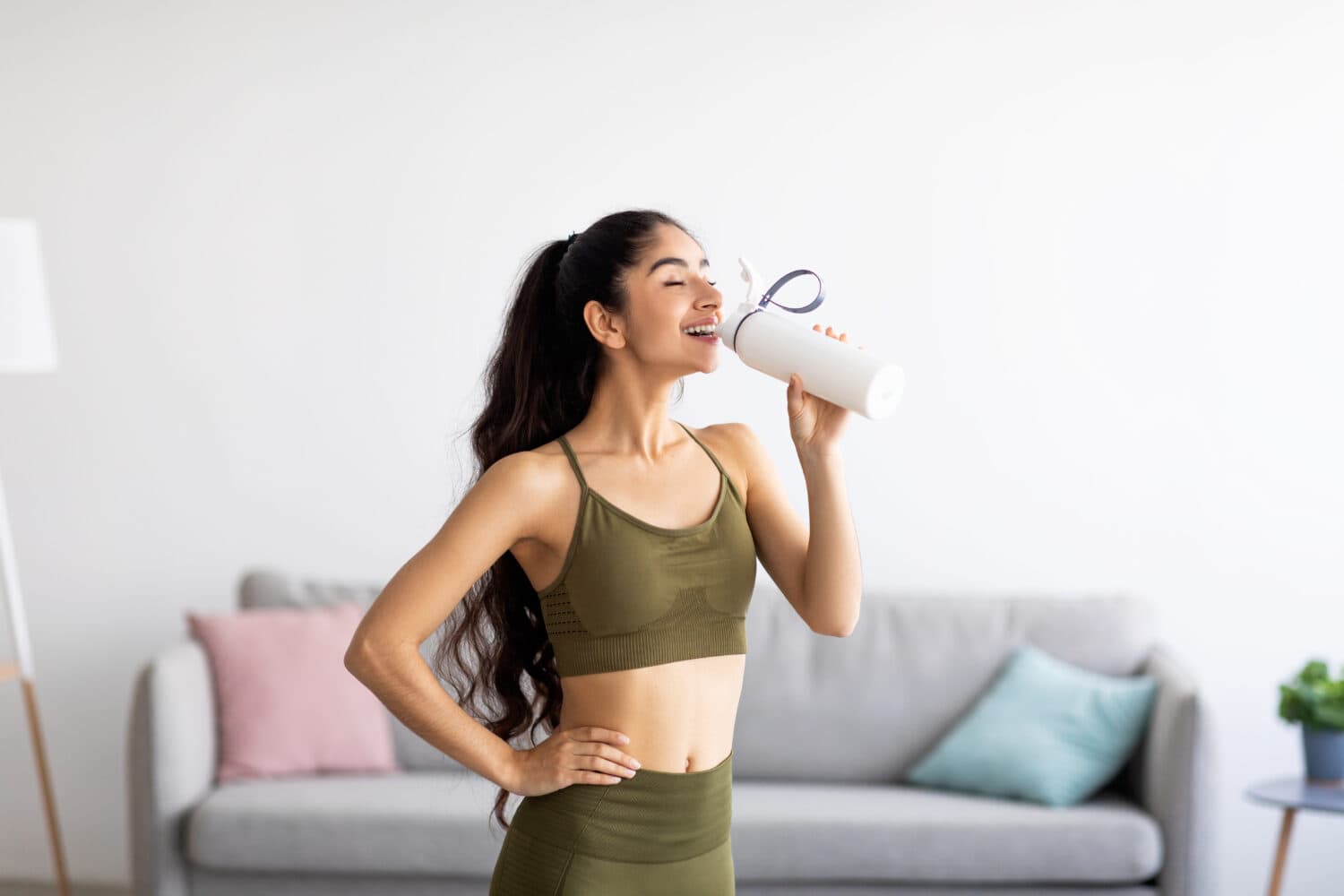
PUMA has been around since 1948, so the brand grew up with Boomers in a way, which may be why they favor their products. 95% of those surveyed recognized the name while 47% favored it, creating a tie with Calvin Klein. PUMA is known for their attempts to reduce their environmental impact, protect workers and recycle clothing.
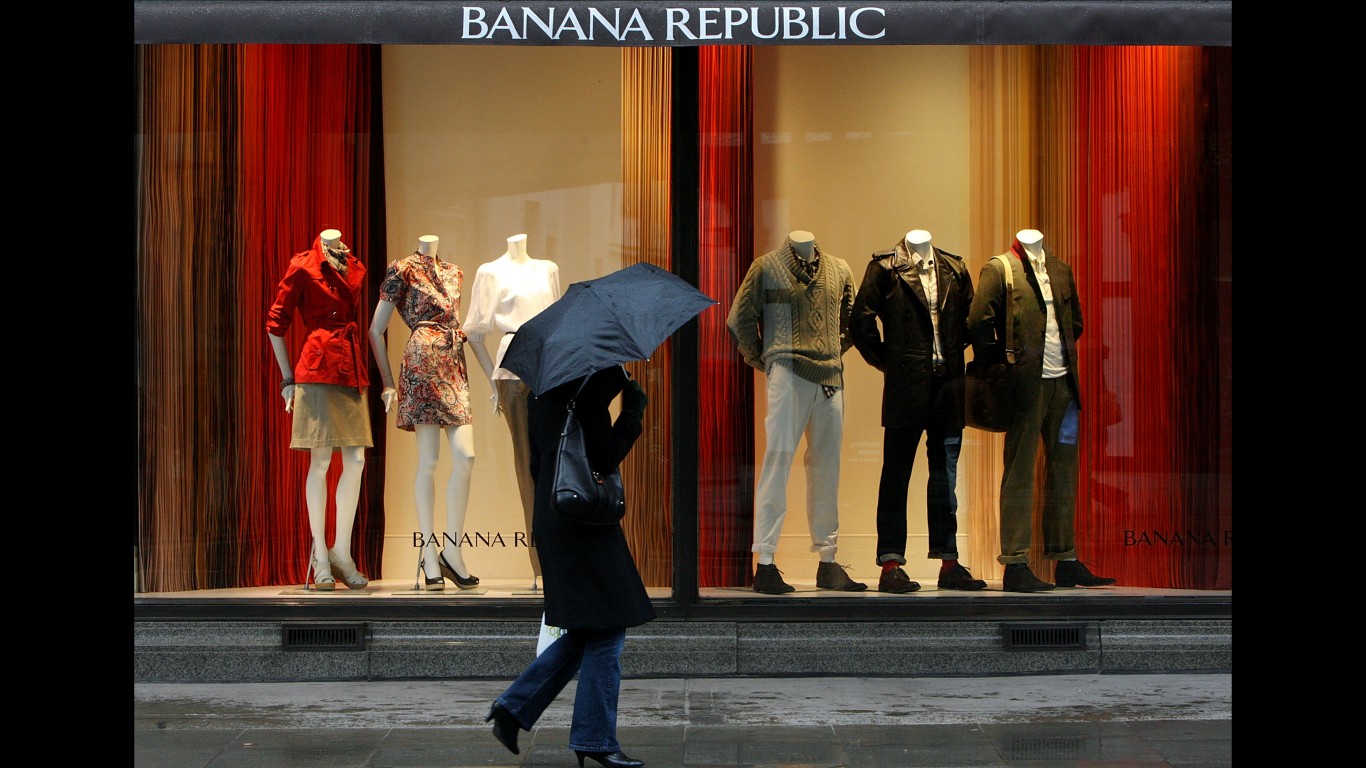
Banana Republic carries a variety of traditional fashion pieces like workwear, summer knits, pleated trousers and polos. These are staple, neutral items that are still high-quality. Of the 97% of Boomers who recognized the brand, 46% favored it.
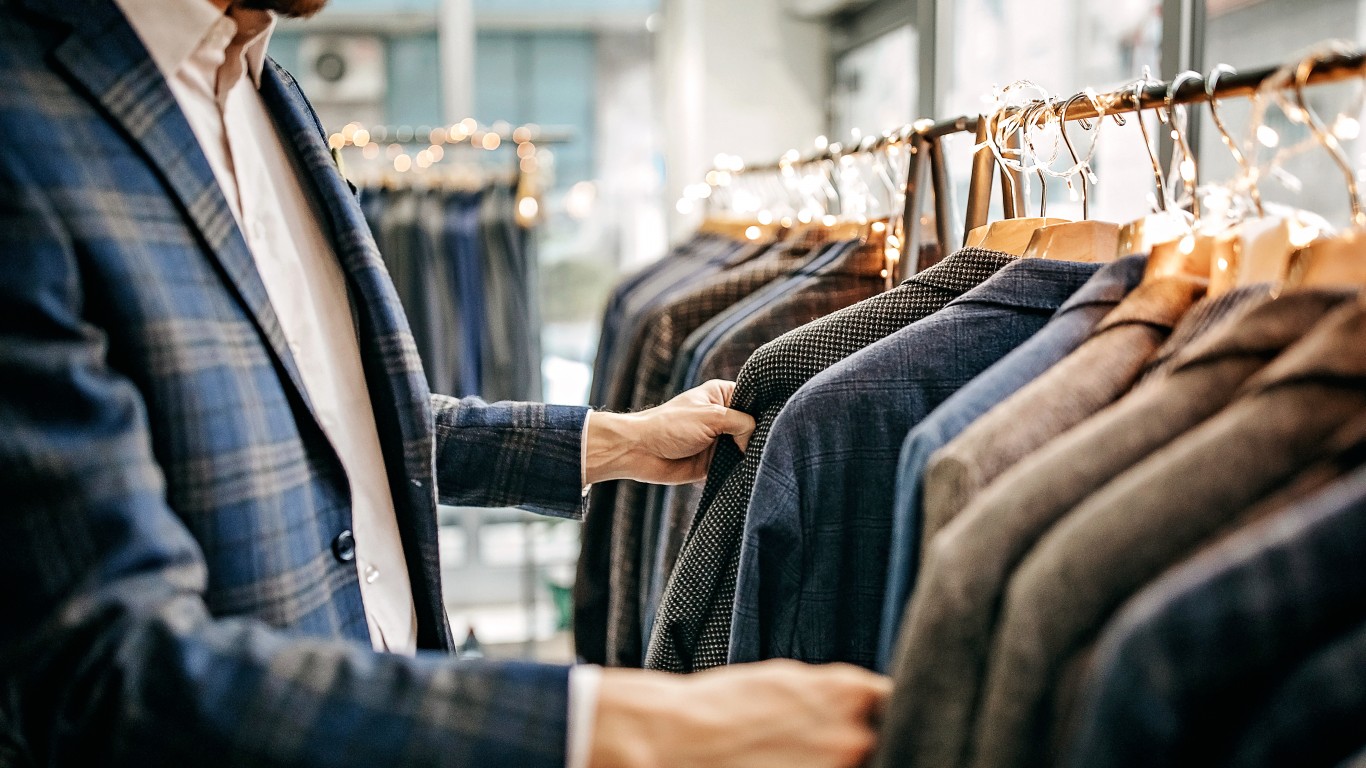
Men’s Wearhouse was recognized by 94% of those surveyed, but only 45% found it favorable. Men’s Wearhouse focuses on customer benefits like free pressing, free re-alterations for life, online fitting, and quick tailoring.
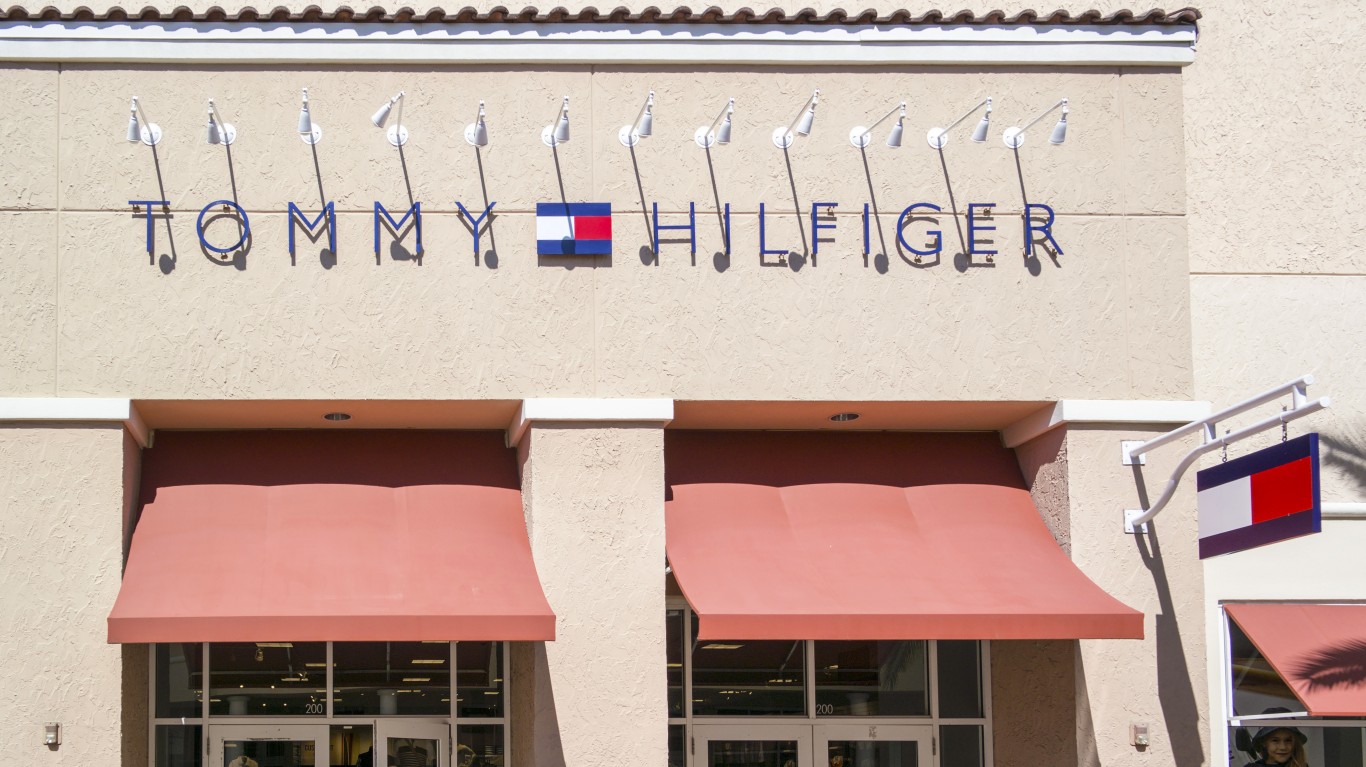
Tommy Hilfiger was another brand highly recognized at 98%, but only liked by 42%. The brand is often known for its American cool style inspired by Americana heritage and pop culture. The products are also extremely high-quality, and Boomers love something that doesn’t need to be replaced often.
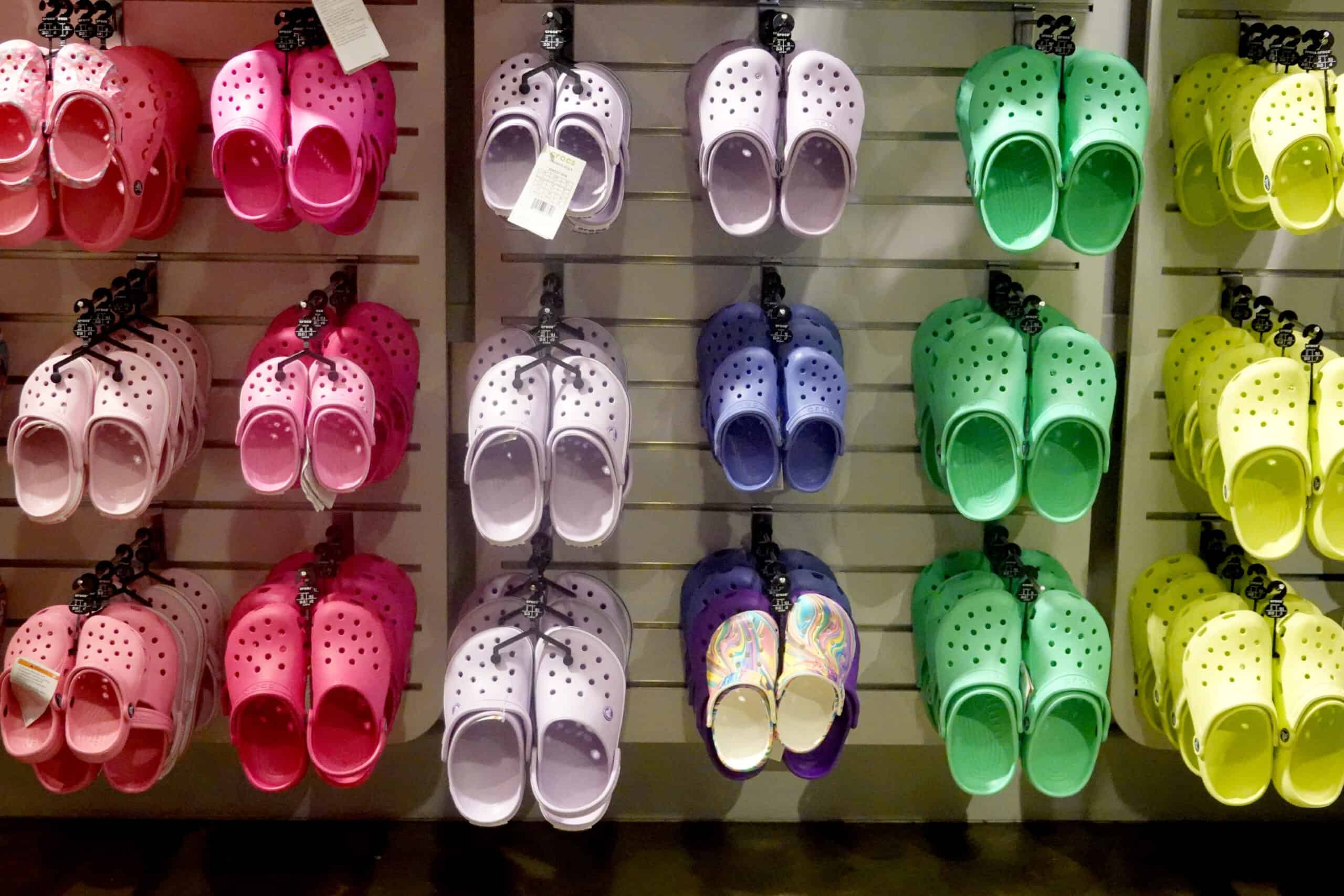
Crocs enters the list at number five, although the brand doesn’t quite fit in between brands like Gucci and Calvin Klein. 95% of those surveyed knew the brand while 42% favored it. Their products are comfortable, lightweight, easy to clean and versatile, and Boomers love something that is low maintenance.
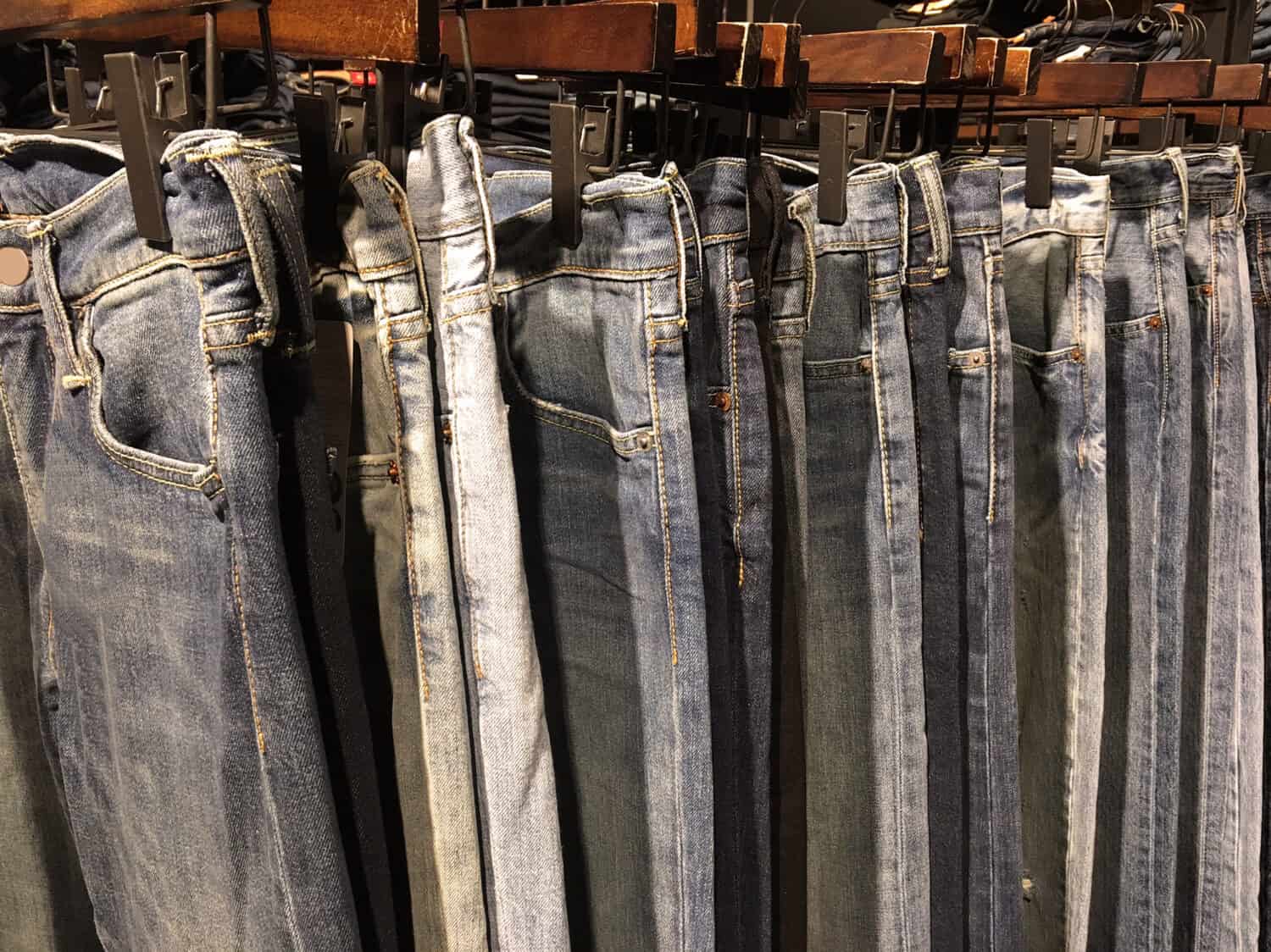
While 40% of those surveyed loved the Gloria Vanderbilt brand, that’s a small number compared to the 95% of respondents who recognized the brand. Simply put, the brand makes clothing that is innovative, stylish, high-quality and moldable for curvy body types.
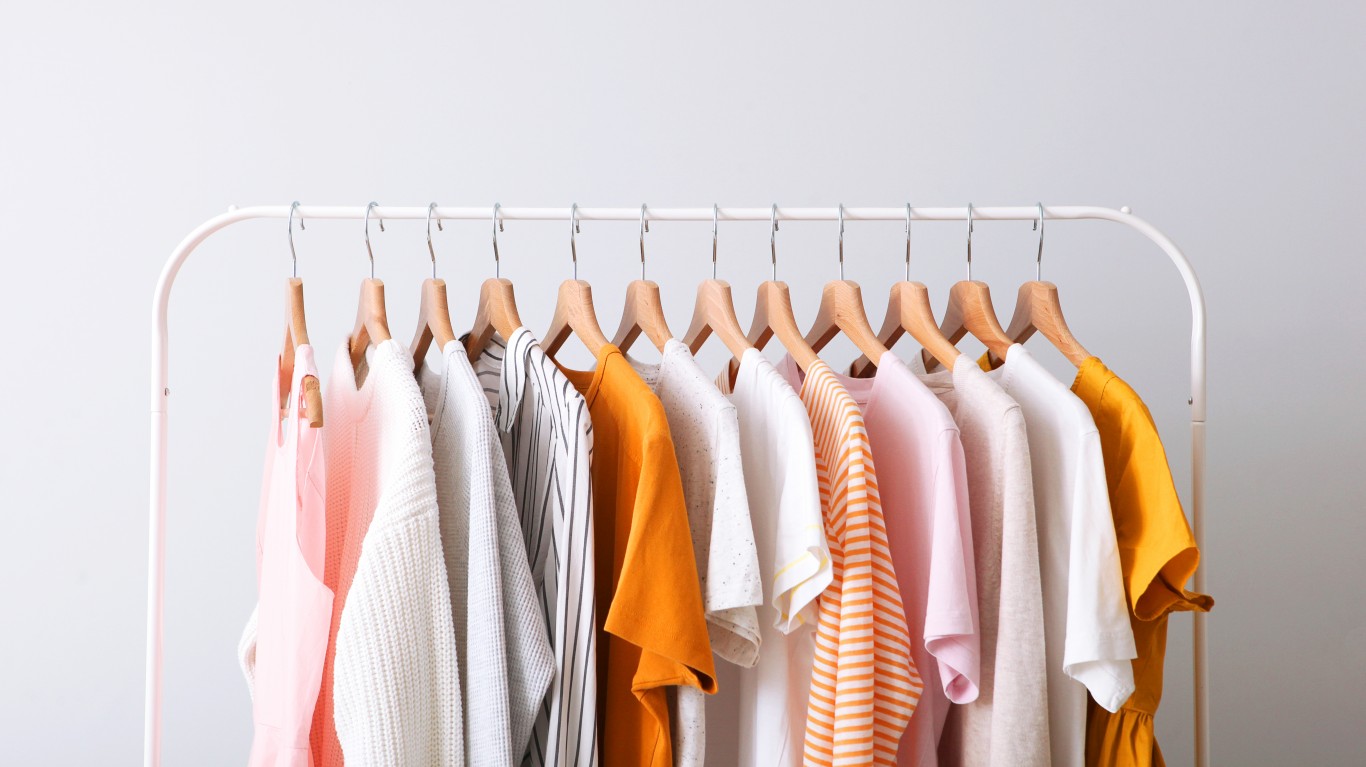
Lane Bryant was less popular on our list, coming in at 90%, with 39% of respondents favoring the brand. Lane Bryant has a robust rewards program, and Boomers love a good kickback for investing in something. All products are made in the USA, and Lane Bryant is a woman-led and woman-founded brand.
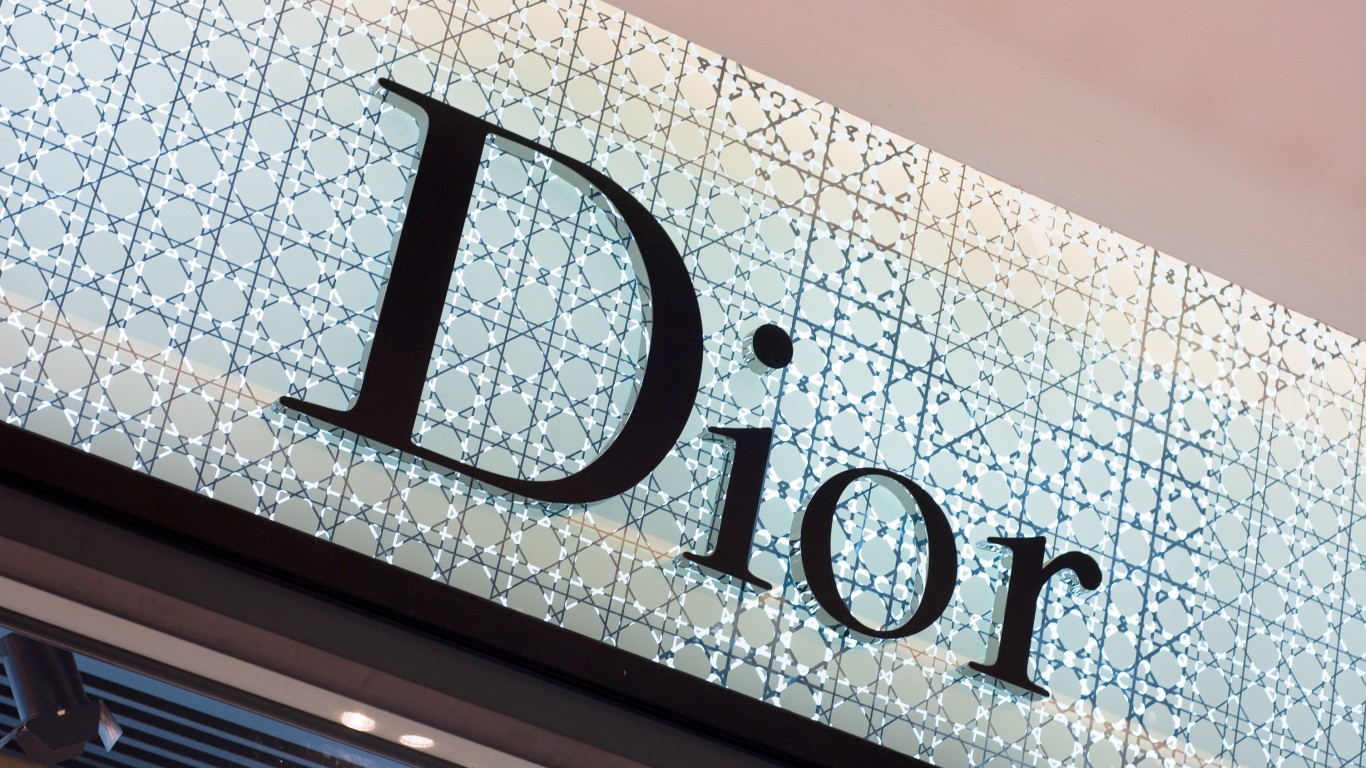
Only 39% of those we included favored the Dior brand, but 91% recognized it. The company claims to use high-quality fabrics and offers products with detailed design and meticulous tailoring. The feminine and glamorous focus combines with the adaptable designs and sustainability, although it may be the iconic designs that keep almost 40% of Boomers interested in them.
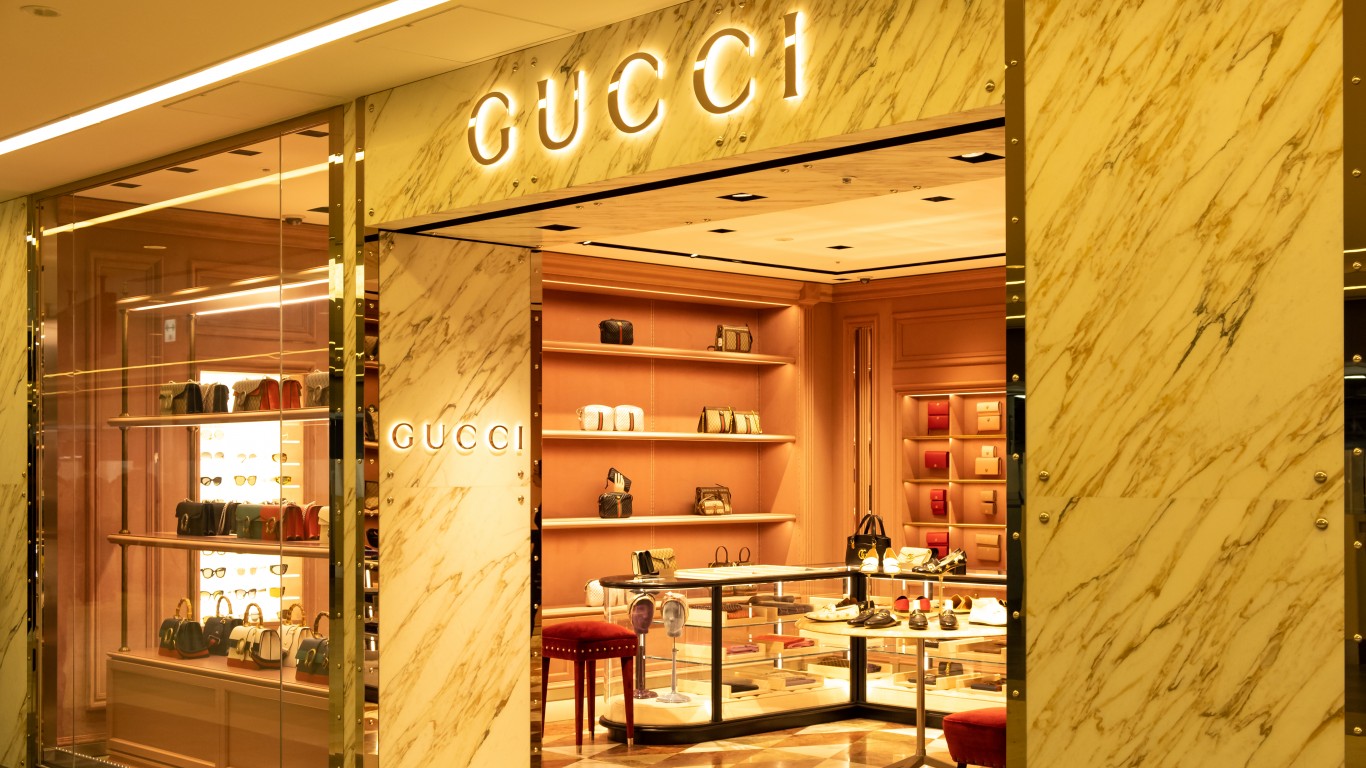
On the survey, Gucci came in as the least popular of brands among those that were recognized by 90% of Boomers or above. With such narrow margins, the 38% of Boomers who like the brand still makes them extremely successful with the generation. Gucci has stores in many countries totaling more than 500. The brand does many charitable projects and is known for self-expression, individuality and creativity.
After two decades of reviewing financial products I haven’t seen anything like this. Credit card companies are at war, handing out free rewards and benefits to win the best customers.
A good cash back card can be worth thousands of dollars a year in free money, not to mention other perks like travel, insurance, and access to fancy lounges.
Our top pick today pays up to 5% cash back, a $200 bonus on top, and $0 annual fee. Click here to apply before they stop offering rewards this generous.
Flywheel Publishing has partnered with CardRatings for our coverage of credit card products. Flywheel Publishing and CardRatings may receive a commission from card issuers.
Thank you for reading! Have some feedback for us?
Contact the 24/7 Wall St. editorial team.